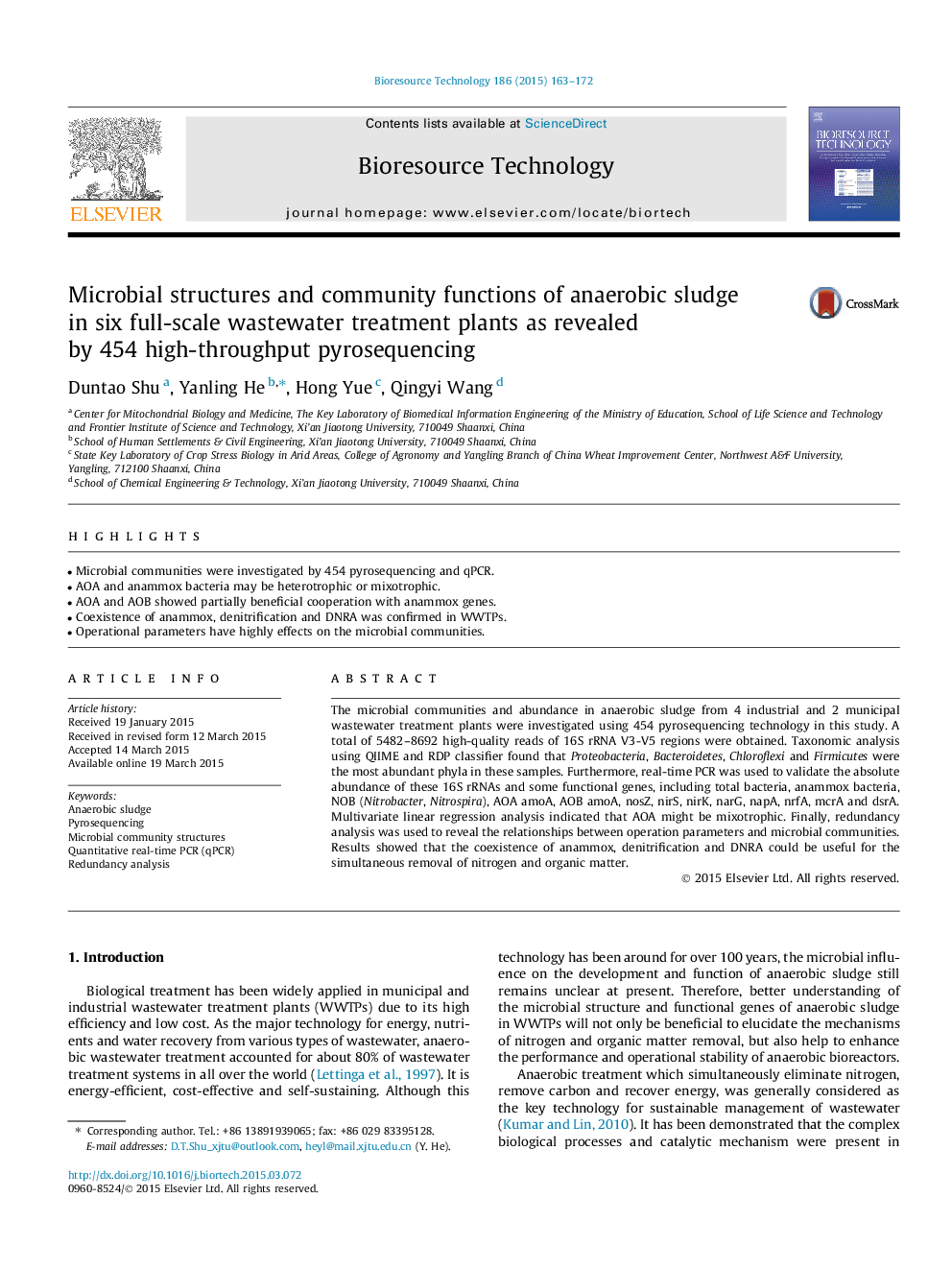| Article ID | Journal | Published Year | Pages | File Type |
|---|---|---|---|---|
| 7074986 | Bioresource Technology | 2015 | 10 Pages |
Abstract
The microbial communities and abundance in anaerobic sludge from 4 industrial and 2 municipal wastewater treatment plants were investigated using 454 pyrosequencing technology in this study. A total of 5482-8692 high-quality reads of 16S rRNA V3-V5 regions were obtained. Taxonomic analysis using QIIME and RDP classifier found that Proteobacteria, Bacteroidetes, Chloroflexi and Firmicutes were the most abundant phyla in these samples. Furthermore, real-time PCR was used to validate the absolute abundance of these 16S rRNAs and some functional genes, including total bacteria, anammox bacteria, NOB (Nitrobacter, Nitrospira), AOA amoA, AOB amoA, nosZ, nirS, nirK, narG, napA, nrfA, mcrA and dsrA. Multivariate linear regression analysis indicated that AOA might be mixotrophic. Finally, redundancy analysis was used to reveal the relationships between operation parameters and microbial communities. Results showed that the coexistence of anammox, denitrification and DNRA could be useful for the simultaneous removal of nitrogen and organic matter.
Keywords
Related Topics
Physical Sciences and Engineering
Chemical Engineering
Process Chemistry and Technology
Authors
Duntao Shu, Yanling He, Hong Yue, Qingyi Wang,
